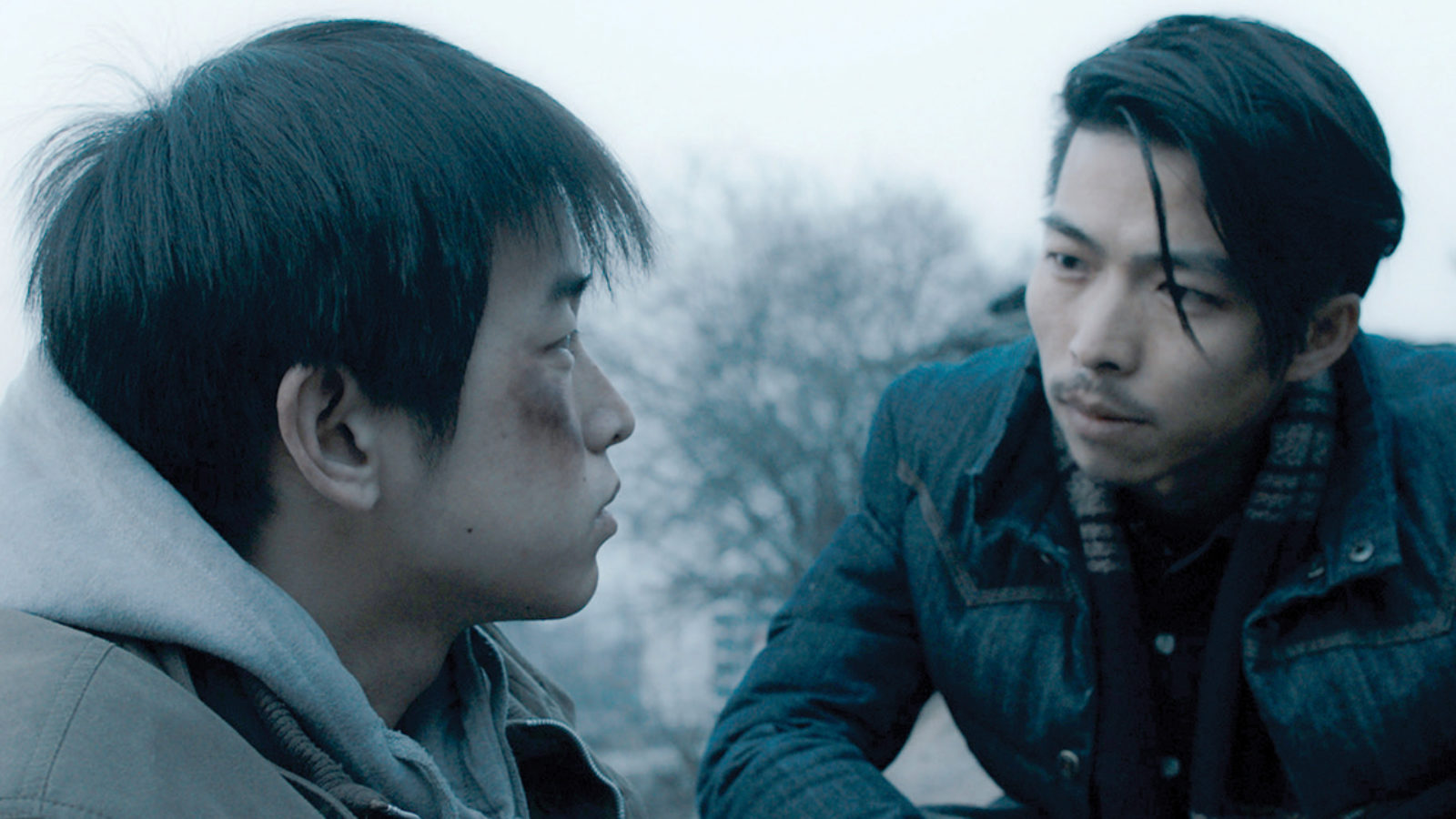
Ice Age
As cycles of cultural production and consumption are increasingly beset with carefully calibrated career-advancing controversies and histrionics, the notion of true sacrifice for one’s art, of genuine risk-taking, of a cinema inextricable from the toil of lived reality can seem more remote than ever. The titular animal in Hu Bo’s An Elephant Sitting Still is a fabled creature in inner Mongolia’s Manzhouli, the odd object of preoccupation for the film’s four dissipated characters that is at once ancient and stoic; an inanimate, timeworn witness to human atrocities and a symbol of resistance against a hostile world of smugness and decadence—in short, an apt metaphor for the pursuit of such a pure cinema. But in the time following the film’s tormented production as its writer-director-editor took his own life at 29 years old, An Elephant Sitting Still and its emblem also became inevitably imbued with a sense of individual tragedy and isolation, becoming an arresting epitaph to a fierce artistic spirit and sadly truncated personal history.
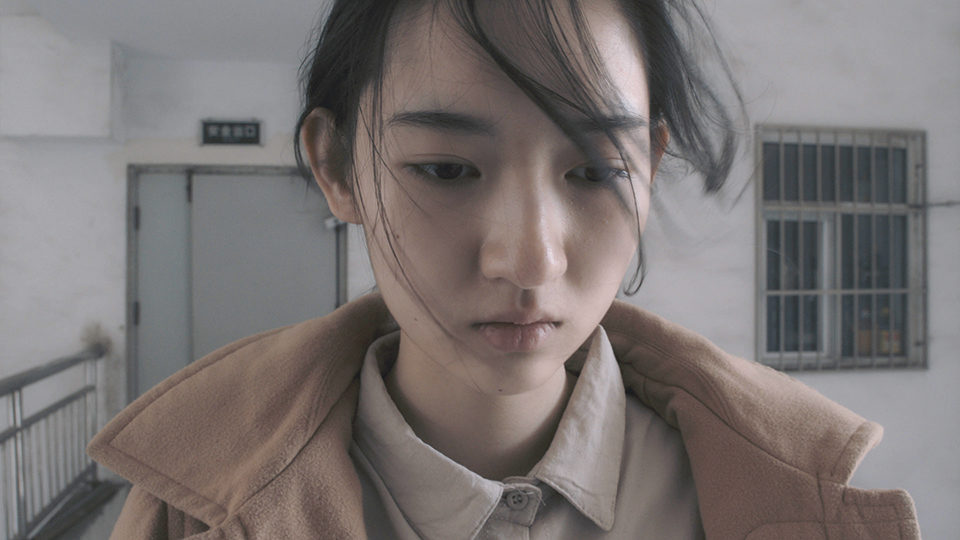
Courtesy of KimStim Films
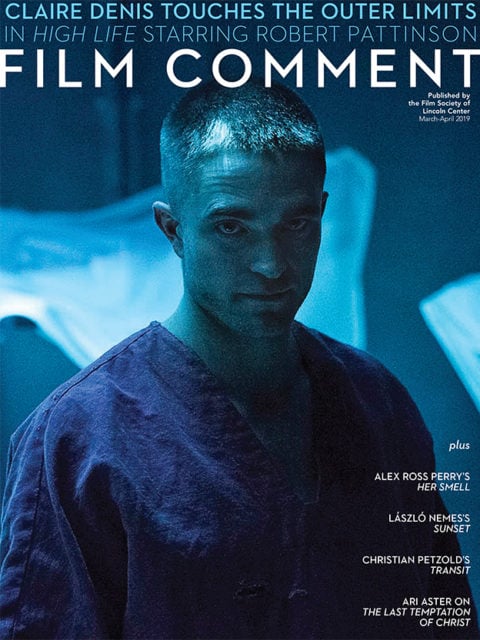
Set in the arid, rural sub-Siberian Hebei province—a dreary vista of declining factories and industrial decay—An Elephant Sitting Still follows a day in the life of four society burnouts brought together by a series of interconnected hapless-life-altering events. Yu Cheng (Zhang Yu), a local gangster, is talking about the Manzhouli elephant to his best friend’s wife, with whom he has been carrying on an attenuated affair, when the friend returns home unexpectedly to find Yu’s shoes. Suddenly understanding the situation, the friend plummets to his death from the high-rise apartment in a grim act witnessed by both adulterers. Meanwhile, Yu Cheng’s younger brother Yu Shuai is the reigning bully at the local high school. His classmate Wei Bu (Peng Yuchang), the film’s protagonist and possibly the filmmaker’s stand-in, is the frequent subject of Yu Shuai’s taunting. Wei is a quietly brooding outcast—a Chinese Antoine Monnier—who is also mysteriously beguiled by the existence of the Manzhouli elephant. In attempting to defend his friend Li Kai, who is accused of stealing the bully’s cell phone, Wei accidentally jostles Shuai down a flight of stairs, resulting in Shuai’s hospitalization and eventual death.
Wei’s escape from school, his abusive parents, and the disastrous consequences of this inadvertent mishap send him on a Homeric quest through the city to acquire the means to travel to Manzhouli. He tries to convince his secret crush Huang Ling (Wang Yuwen) to go with him, but she is mired in her own ordeals involving her single, alcoholic mother and a tumultuous affair with the married vice principal of the school. Along Wei’s journey, he crosses paths with an older man named Wang Jin (Li Congxi) and tells him about the elephant. Wang has been cast out of his own apartment by his daughter and son-in-law, a teacher who ironically lacks the funds to send his own kid to a decent school. Wang’s departure is prompted by his family’s insistence on selling his home for extra cash flow and an unfortunate encounter with Yu Cheng’s gang. Eventually, the characters all find themselves on an itinerant journey to seek out the elusive elephant and escape their disastrous fates back home.
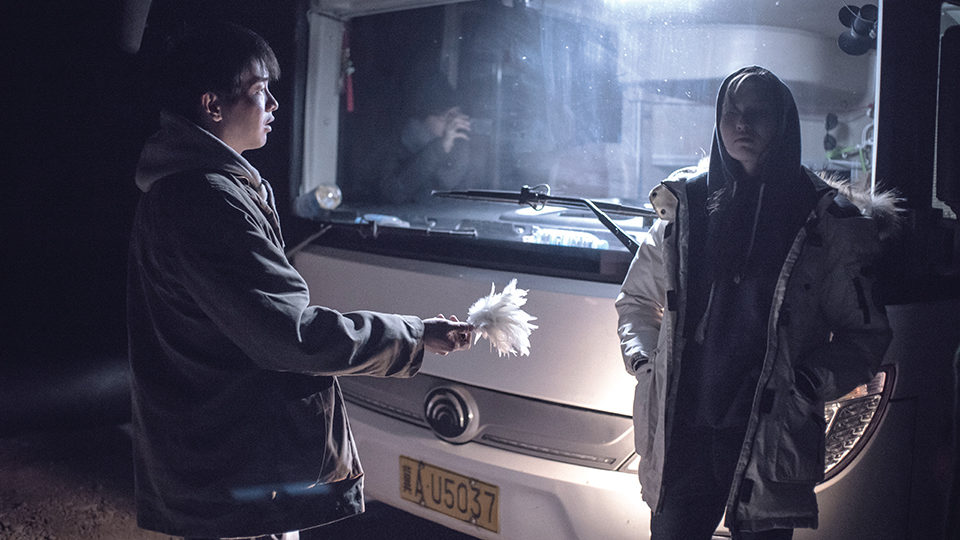
Courtesy of KimStim Films
Within the film’s imposing, nearly four-hour span, Hu delicately alternates between the individual plights of these characters, captured with deliberate Steadicam long takes. Occasionally, we drift off on peripheral plots that develop around the characters who wander in and out of each other’s paths, such as the story of Wang’s cherished puppy—who yields the only innocent loving relationship found anywhere in the film—and his death from another dog’s bite. Hu’s slow-roaming camera bears a haunting spectral quality. It offers a sustained gaze into the hollow center of inhumanity, following Wang and Wei as they enter into a violent confrontation with the killer canine’s callous owner. Hu holds this shot as the dog owner pushes Wei down and repeatedly kicks him to the ground. What emerges from Hu’s unrelenting long takes is a profound emotional tension that overlays the scenes of brutality.
Despite the mannered dialogue and the actors’ affectedly somber, almost Bressonian line deliveries, An Elephant Sitting Still’s expansive shots seem to dilate time into a lived reality that bears the unwieldy weight of life on the margins of an unforgiving urban hellscape, imprinting its architecture with the lumbering, burdensome existence of its nomadic characters. The modern China chronicled in An Elephant Sitting Still draws a radically dissonant national portrait—one of abasement, grit, and drudgery, trapped in a state of endlessly desperate, demoralizing Beckettian suspension—in contrast to the official national narratives of forward-moving hyper-accelerated social progress shown in that country’s mainstream media and much of its commercial cinema.
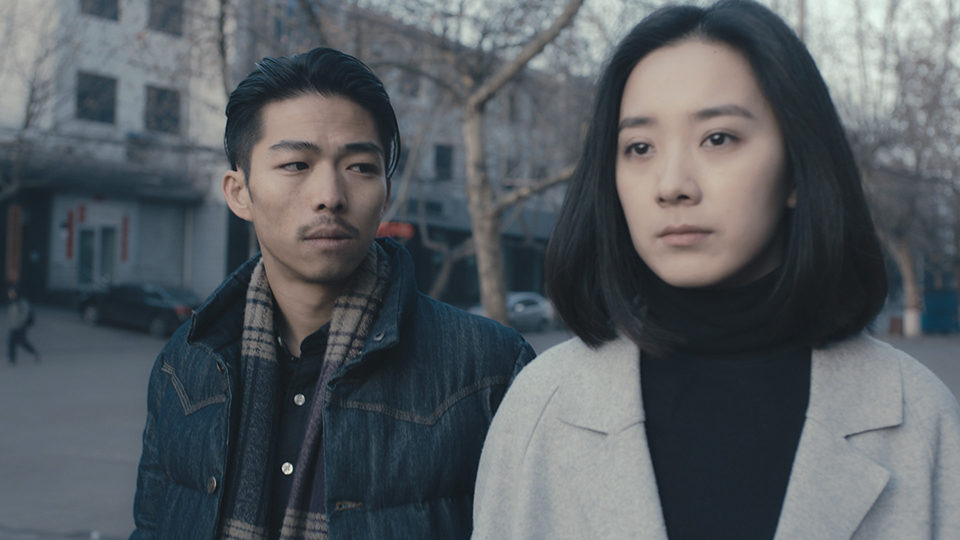
Courtesy of KimStim Films
An Elephant Sitting Still is permeated by bone-deep anguish and hopelessness, proffering images of a world in which all personal interaction is predicated upon the exchange and abuse of money and power. Wei is betrayed by the friend he tries to protect from the bully; Wang is abandoned by his own children; Huang is stabbed in the back by all her classmates who leak images of her affair with the vice principal onto their WeChat circle. These characters grapple with the difficult question of whether to quit a life of increasing disarray in search of something unknown or to stay and reckon with their disastrous fate—a question Hu must have been asking himself as he toiled through the production of the film. They feebly try to find their way out of these circuits of oppression and betrayal, but their only goalpost of hope—the elusive Manzhouli elephant—seems more abstracted the closer they get to it.
Looking out into a barren landscape of abject misery, Wei wails a deafening “Fuck you!” into the sky as a train passes in the distance, partially blanketing his cry. Such an image makes for a fitting summation of a film that maintains a complete fidelity—bolstered by the uncompromising spirit that only youthful agony can produce—to the singularly bleak vision of its maker: it is a work of art opposing any comforting intermediaries or compromises to so-called industry standards that favor commercial profit over artistic impulse.
The Weibo posts made by Hu during the film’s troubled production eerily read like a portentous breadcrumb trail leading to the artist’s ultimate tragic sacrifice for the sake of his art. The film was produced by Dongchun, a company owned by filmmaker Wang Xiaoshuai and his wife. Hu’s journals chronicle the struggles he faced with producers who wanted to cut the film down to a more marketable length. He talks about how his girlfriend had left him; how he was losing his hair from the stresses of completing the film; how he felt he had nothing left save for a cat and the aspiration to buy back the rights to the film. He exposes a deeply nihilistic sense of humor, joking that it would be impossible to make enough money to fund films unless one resorted to drug trafficking. His hopelessness for the future—a sense which pervades every aspect of An Elephant Sitting Still—can be found in these entries: “It’s better when you are young because you don’t believe in anything. By the time you get older, it becomes pointless to believe in anything even if you tried.”
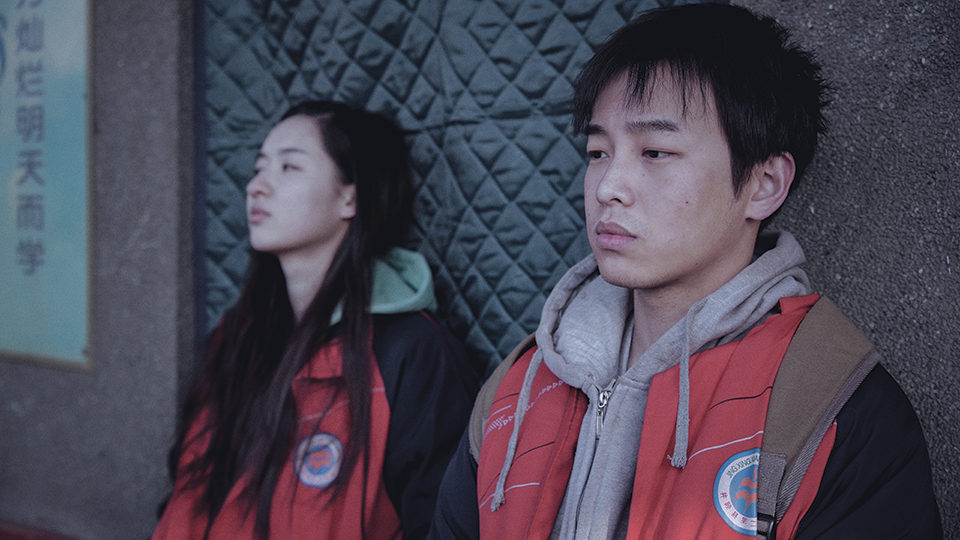
Courtesy of KimStim Films
The world seemed to be against Hu and his film as much as Hu used the film as his means of resistance against the world. The image of the dog owner with Wei and Wang comes to mind as one reads through Hu’s account of his emotional turmoil, feeling knocked down at every turn throughout An Elephant Sitting Still’s production process. His troubles started before shooting even began: he had wanted the palette of the film to look ashy gray as though steeped in miasmic taint—a feat that would have been easy on any other day in Hebei, but the week of shooting happened to coincide with a series of official meetings for the Chinese government, and all factories had been ordered to cease operation for the duration of these sessions in order to expose a rare blue sky. Hu joked that even the weather had cursed his film.
The elephant finally shows up toward the end, but only metonymically in the form of a resounding off-screen bray—echoing Wei’s earlier “fuck you” to everything—in the only still shot of the film as the characters play hacky sack with a shuttlecock in the dead of night by the glowing headlights of a bus headed for Manzhouli. It is a shocking occurrence: a dash of magical realism; a tiny speck of levity in a world of despair. It is doubtful as to whether the characters of An Elephant Sitting Still ultimately find contentment and belonging. But in light of the tragedy that took place in Hu’s world as he exchanged his life for artistic virtue, An Elephant Sitting Still is a sort of self-portrait inscribed with the artist’s despair and penance; the summation of a brilliant tortured spirit whose potential contributions to the world and the cinema will sadly never be fulfilled.
The rights to An Elephant Sitting Still were transferred to Hu’s parents after his death. It premiered in the longer cut that he would have preferred and won accolades at Berlinale, Hong Kong, and the Golden Horse Film Festival, where it was championed by executive committee chair Ang Lee. In his introduction to the premiere in Toronto, Béla Tarr, who helped Hu develop his debut short film Man in the Well at his FIRST Training Camp, spoke of Hu’s unmistakable imposing physical stature as well as the enormous void in the world of cinema left behind by Hu’s untimely passing. While it can be dangerous to give in to seductive narratives of artistic martyrdom, An Elephant Sitting Still can never be seen as extricable from the tragic biography of its maker. It is a halting, anguished cry of resistance against the all-pervasive decadence and smug, professional loftiness of our world, and a monolith to one of the purest, most devoted acts of filmmaking we’ve been fortunate enough to witness in our time.
An Elephant Sitting Still opens on March 8 at the Film Society of Lincoln Center. On March 9, join Film Comment for a free talk, featuring Aliza Ma, actor Zhang Yu; Dinda Elliott, senior vice president of the China Institute; and Nicolas Rapold.
Aliza Ma is a New York–based programmer and writer specializing in Asian cinema.







